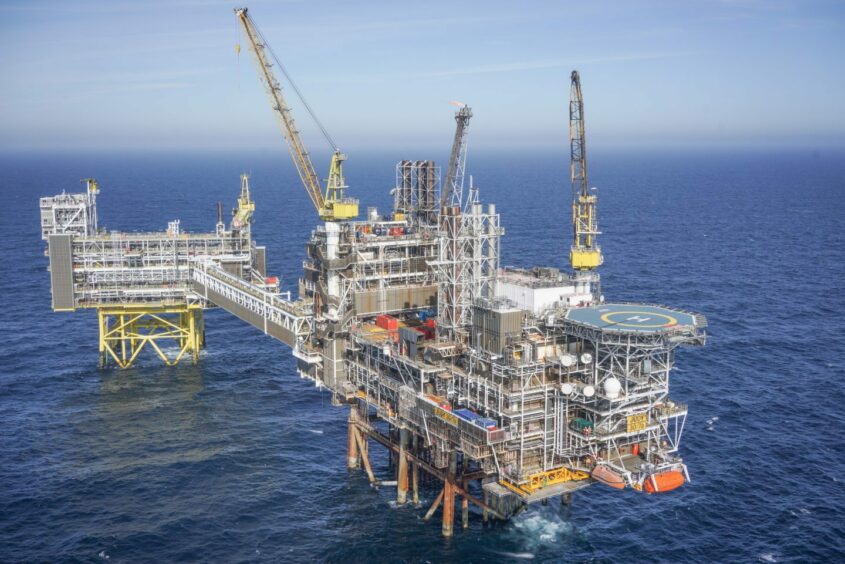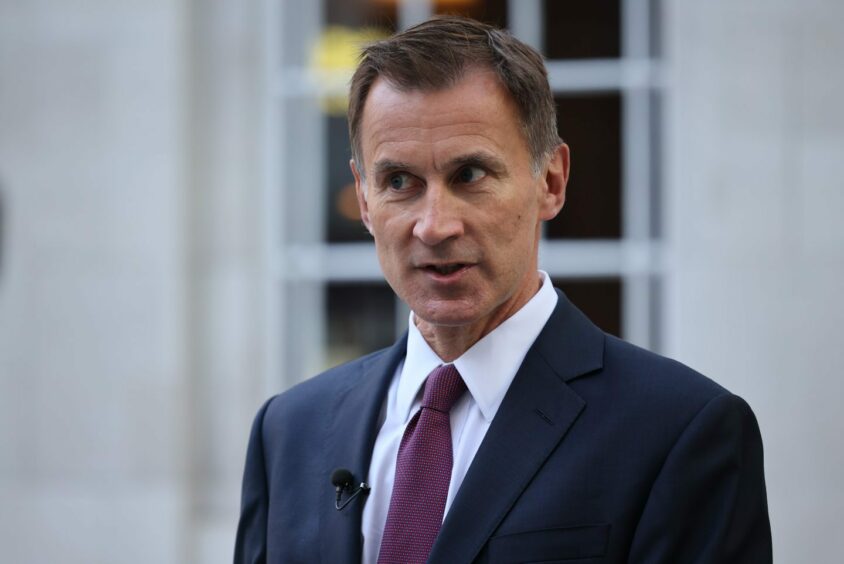
A senior figure at Neptune Energy says the UK Government’s energy profits levy (EPL) has sent North Sea “investor confidence to an all-time low”.
That puts at risk the “vital work government and industry must do to bolster energy security” and deliver net zero, Sam Laidlaw argues in an opinion piece in the Evening Standard.
He also claims that 10 years ago, the impact of the current windfall tax, which brings total taxes on UK oil and gas producers to 75%, wouldn’t have been so significant.
At that time, the North Sea was mainly populated by large, international players with deep pockets, making them better able to absorb the impact of the policy.
Independents feeling the pinch
Now the “bulk of both production and investment” comes from independents – like Ithaca Energy and Harbour Energy – focused on unlocking “vital energy sources”.
Many of them are also “financed from the City of London”, but the EPL, and its subsequent increase, have restricted access to capital.
Mr Laidlaw, Neptune’s executive chairman, said: “While majors have moved out of the North Sea, the independents have moved in. In the last six years, these companies have invested more than $50 billion in the basin – more than double that of the larger companies who used to dominate. Collectively, they now produce more than 50% of the UK’s oil and gas needs – a number that will grow in the years ahead.
“Yet, it is on the shoulders of these independent companies that the impact of these new windfall taxes falls disproportionately. Unlike the majors, these companies don’t have the same level of balance sheet power and rely on external sources of funding that come with more strings attached.
“Like any lender, banks require collateral to provide finance. For independents, their borrowing capacity is determined by the value of their reserves, much like a mortgage on the value of a house. Higher taxes erode the value of these reserves, restricting their ability to access investment capital and continue to invest in new projects.
“Lenders also require them to sell production forward to protect future revenues. What they produce today is not sold at current prices, but at ‘realised’ prices agreed two or even three years ago, when prices were significantly lower.”
Two quick fixes
Mr Laidlaw acknowledges that the sector “must play its role in ensuring the country can balance the books”.
But to “avoid this coming at the expense of long-term energy security goals”, Mr Laidlaws has put forward “two simple steps” to create an agreeable fiscal environment.
The first is to include a “price floor” that would mean the windfall tax falling away if oil and gas prices fell.
The original incarnation of the policy had such a measure in place, but Chancellor Jeremy Hunt removed it in November, at the same time as he increased the levy by 10%.
Mr Laidlaw’s second suggestion is that the EPL should “target only actual profits by factoring in realised prices”.
“In other words, the revenue that the companies actually earn when they sell their energy ahead of time, rather than at current high prices that reflect only a fraction of what they sell.”
That would mean any profit gained from “production sold at or below the level of the floor price should be exempt” from the levy.
Mr Laidlaw added: “Implementing these two simple changes will ensure independents can access finance, providing them with the capital to invest now for the future – not only for new sources of gas and oil, but also, importantly, for repurposing facilities for the energy transition.
“The Government was right to implement an investment allowance alongside the EPL – and its recently announced new exploration licencing round was welcomed by the sector. This will help maintain the domestic resource that is essential to the UK’s energy security, while drawing on the sector’s skills and know-how to develop new technologies and scale up production.
“Both the Prime Minister and the Chancellor spent their previous careers in finance. They reacted quickly and decisively to restore confidence in the UK’s financial markets in the autumn. They must now react just as quickly to ensure the UK’s laudable aim of energy independence by 2040 does not fall at the first hurdle.”
Recommended for you


 © Supplied by Harbour Energy
© Supplied by Harbour Energy © George Cracknell Wright/LNP/Shut
© George Cracknell Wright/LNP/Shut